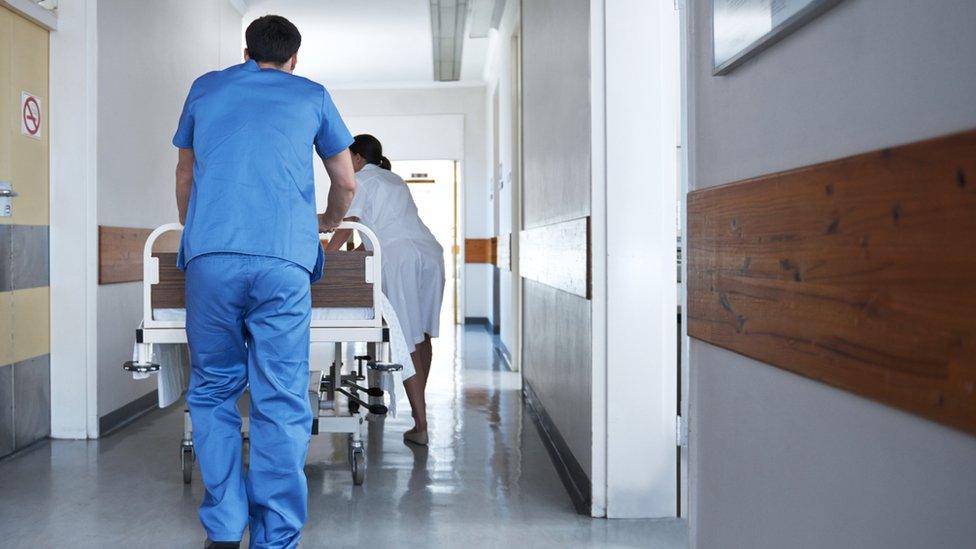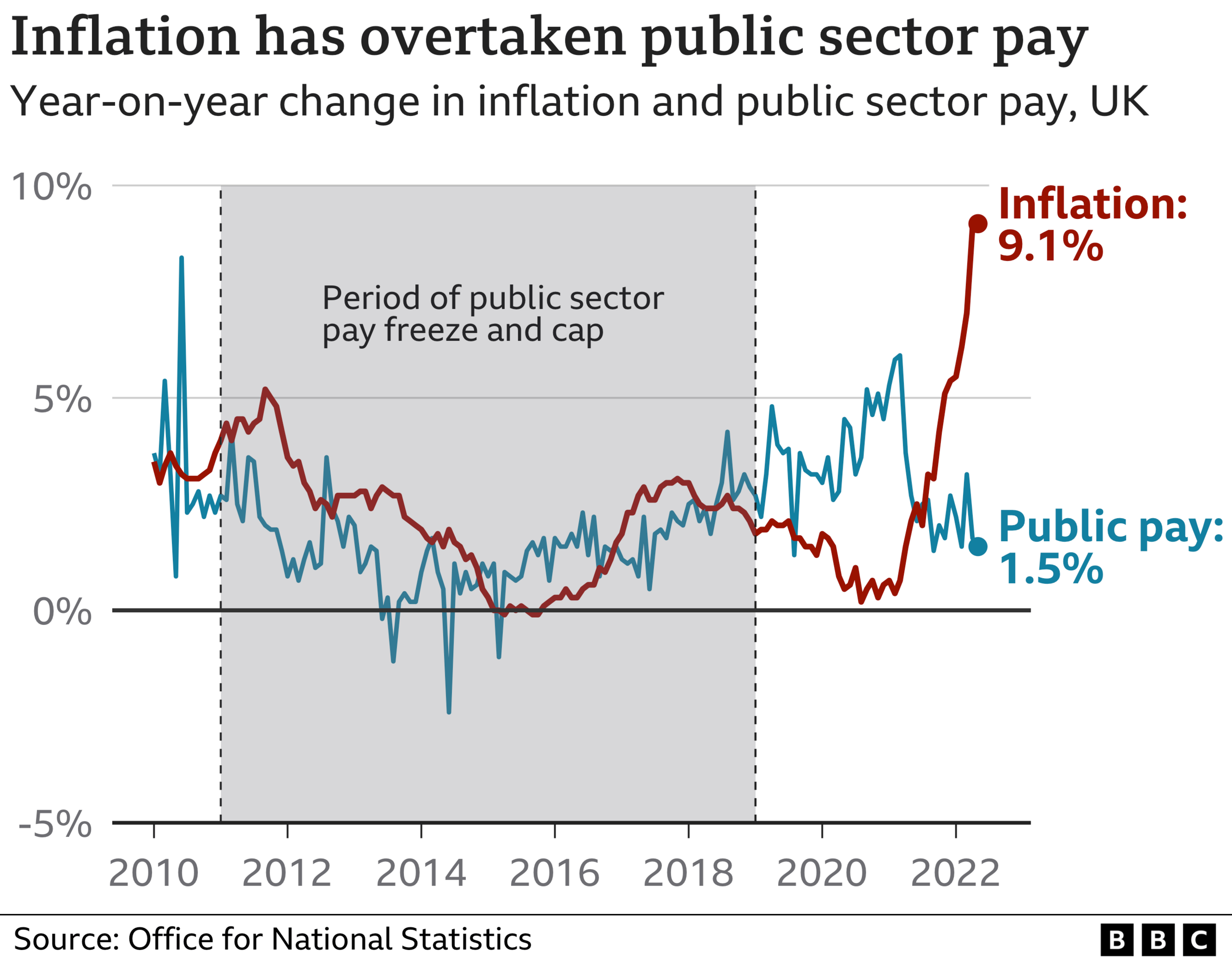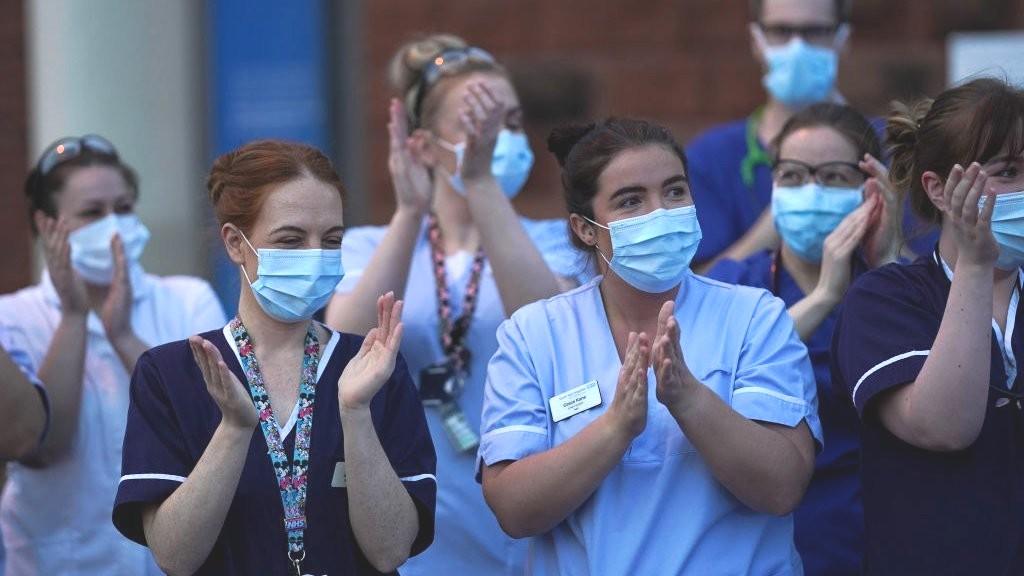NHS services may have to be cut to fund pay award
- Published

NHS bosses are warning that some services may have to be cut to fund the pay award in England.
The government has announced doctors will receive a 4.5% pay increase and other staff an average of 4.75% - a rise backed by NHS England.
It comes as Royal College of Nursing (RCN) leaders said they would ballot members over industrial action.
The RCN called for a pay rise of 5% above inflation - the equivalent of 12.5% - earlier this year.
No increase in NHS budget
A spokesman for NHS England said it was right that the government honoured the pay review body recommendations, because without this the number of vacancies would worsen.
But it said as the NHS was not getting any extra money to pay for the rise, services were under threat.
When budgets were set, the government only made provision for a 3% pay increase and at the moment ministers are not planning to increase the budget to cover the extra cost, which totals nearly £2bn.
A spokeswoman said: "Given the requirement to fund this within existing Department of Health budgets, we will need to release money from existing programmes, regrettably impacting on the planned rollout of tech and diagnostic capacity across the health service.
"But with ongoing cost-of-living pressures causing difficulties for many staff, it is crucial we support our hugely dedicated NHS workforce at this time."

Meanwhile, the RCN called the pay award announced on Tuesday a "grave mis-step".
The government had only wanted to offer 3%, but agreed to more after a recommendation by the independent pay review bodies that make suggestions about pay rises in the NHS.
The award for non-medical staff is structured so everyone is guaranteed at least £1,400. It means the lowest-paid staff, such as porters and cleaners, will receive more than 9%, but more senior nurses will see their pay rise by closer to 4%.
RCN general secretary Pat Cullen said: "After years of underpayment and staff shortages, the fight for fair pay must continue."
Doctors and dentists are to receive 4.5%, but this does not include junior doctors, who are only due just over 2% under a four-year deal agreed in 2019.
Ben Zaranko, of the Institute for Fiscal Studies, said the government faced an "uncomfortable choice" on pay, given the situation with inflation.
He said finding extra money to cover the cost of the pay award would require higher borrowing, but agreed not doing so would require cuts, which arguably could be a "coherent response" in the global economic situation.
Related topics
- Published21 June 2022
- Published7 January 2021
